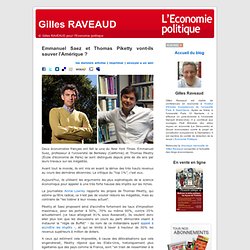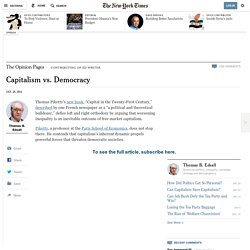

The Big Idea: Creating Shared Value Debt Is Good. Publishing Government Contracts: Addressing Concerns and Easing Implementation. Government contracts regarding the use of public property and finances should be published by default.

Many jurisdictions already require that contracts be made public in response to requests for the information; some now publish contracts proactively. Doing so helps new entrants compete in the market for public contracts, helps governments model their projects on other successful examples, and allows citizens greater insight into how their taxes are being spent. This provides a practical outline for reaping the benefits of open contracts while addressing legitimate concerns about costs, collusion, privacy, commercial secrecy, and national security. Government-controlled firms: State capitalism in the dock. ON NOVEMBER 14th Brazilian police raided the offices of Petrobras, a vast state-controlled oil firm at the centre of a corruption scandal.

Are Concerns Over China's State Capitalism Overblown? B. Corporations, une nouvelle génération d’entreprises au service du bien commun. "B Corps" ou "Benefit Corporations" : derrière ce label et une nouvelle forme d’entreprise aux États-Unis, un mouvement de fond est en train de voir le jour avec des entreprises qui entendent utiliser le pouvoir du business pour créer un "bénéfice public", social ou environnemental, au service du bien commun.

"Faire évoluer le capitalisme", c’est ce que souhaite Jay Coen Gilbert, fondateur américain du B Lab et premier promoteur des B Corporations. Il s’agit de passer d’un capitalisme du XXe siècle, dont la seule règle est de créer de la valeur pour les actionnaires, à un capitalisme du XXIe siècle qui prend en compte l’intérêt des travailleurs, des communautés locales et de l’environnement au même titre que celui des actionnaires.
Leur slogan : "Nous ne voulons pas être les meilleurs du monde, mais les meilleurs pour le monde ! " Qu’est-ce qu’une entreprise B Corp ? Beyond Wall Street: the encouraging growth of new financial models. The term circular economy may be new to finance, but the concept is not.

The circular economy has caught on in large part because of the need to eliminate waste, where the breakdown of one system leads to the creation of another. Hazel Henderson, futurist, economist and president and founder of Ethical Markets Media, has been chronicling emerging systems of consensual decision-making, stakeholder feedback, collaborative consumption and co-operatives bypassing Wall Street for years. France's Thomas Piketty could be the Left's version of anti-debt Carmen Reinhart-Kenneth Rogoff.
Piketty, a professor at the Paris School of Economics, said there is no reason to think, based on any economic theory, that capitalist economies will necessarily produce economic growth to go with high returns of capital controlled by the wealthy.

Companies that Practice "Conscious Capitalism" Perform 10x Better - Tony Schwartz. The new Washington consensus - time to fight rising inequality. The theme of this week’s annual meetings of the International Monetary Fund and the World Bank is shared prosperity.

In years gone by, the Washington consensus was all about opening up markets and cutting public spending. The new Washington consensus is the need to tackle inequality. The Economist explains: Thomas Piketty’s “Capital”, summarised in four paragraphs. It is the economics book that took the world by storm.

Capital in the Twenty-First Century, written by the French economist Thomas Piketty, was published in French in 2013 and in English in March 2014. The English version quickly became an unlikely bestseller, and it prompted a broad and energetic debate on the book’s subject: the outlook for global inequality. Some reckon it heralds or may itself cause a pronounced shift in the focus of economic policy, toward distributional questions.
Thomas Piketty's Capital: everything you need to know about the surprise bestseller. That capitalism is unfair has been said before.

But it is the way Thomas Piketty says it – subtly but with relentless logic – that has sent rightwing economics into a frenzy, both here and in the US. Emmanuel Saez et Thomas Piketty vont-ils sauver l'Amérique ? Deux économistes français ont fait la une du New York Times.

Emmanuel Suez, professeur à l’université de Berkeley (Californie) et Thomas Piketty (École d’économie de Paris) se sont distingués depuis près de dix ans par leurs travaux sur les inégalités. Avant tout le monde, ils ont mis en avant la dérive des très hauts revenus au cours des dernières décennies. La critique du “top 1%”, c’est eux. Aujourd’hui, ils utilisent les arguments les plus sophistiqués de la science économique pour appeler à une très forte hausse des impôts sur les riches.
La journaliste Annie Lowrey rapporte les propos de Thomas Piketty, qui estime qu’être radical, ce n’est pas de vouloir réduire les inégalités, mais au contraire de “les tolérer à leur niveau actuel”. Capitalism vs. Democracy. Thomas Piketty’s new book, “Capital in the Twenty-First Century,” described by one French newspaper as a “a political and theoretical bulldozer,” defies left and right orthodoxy by arguing that worsening inequality is an inevitable outcome of free market capitalism.

Piketty, a professor at the Paris School of Economics, does not stop there. Of the 1%, by the 1%, for the 1% It’s no use pretending that what has obviously happened has not in fact happened. The upper 1 percent of Americans are now taking in nearly a quarter of the nation’s income every year. In terms of wealth rather than income, the top 1 percent control 40 percent. Their lot in life has improved considerably. Twenty-five years ago, the corresponding figures were 12 percent and 33 percent. Michael Porter: Pourquoi les entreprises peuvent réussir à résoudre les problèmes sociaux. The Theory That's Killing America's Economy. I wrote in a previous article how America's disastrous embrace of free trade is ultimately based on a false theory of how the global economy works: the so-called Theory of Comparative Advantage. This is what economists, from the government on down, believe in. This matters. But I didn't explain why the theory is wrong -- which it is.
Untitled. Gentrification's toll: 'It's you or the bottom line and sorry, it's not you' Last week, the Sierra Club left San Francisco, its home since its founding 124 years ago. Like so many individuals and institutions, it was pushed out by high rent.